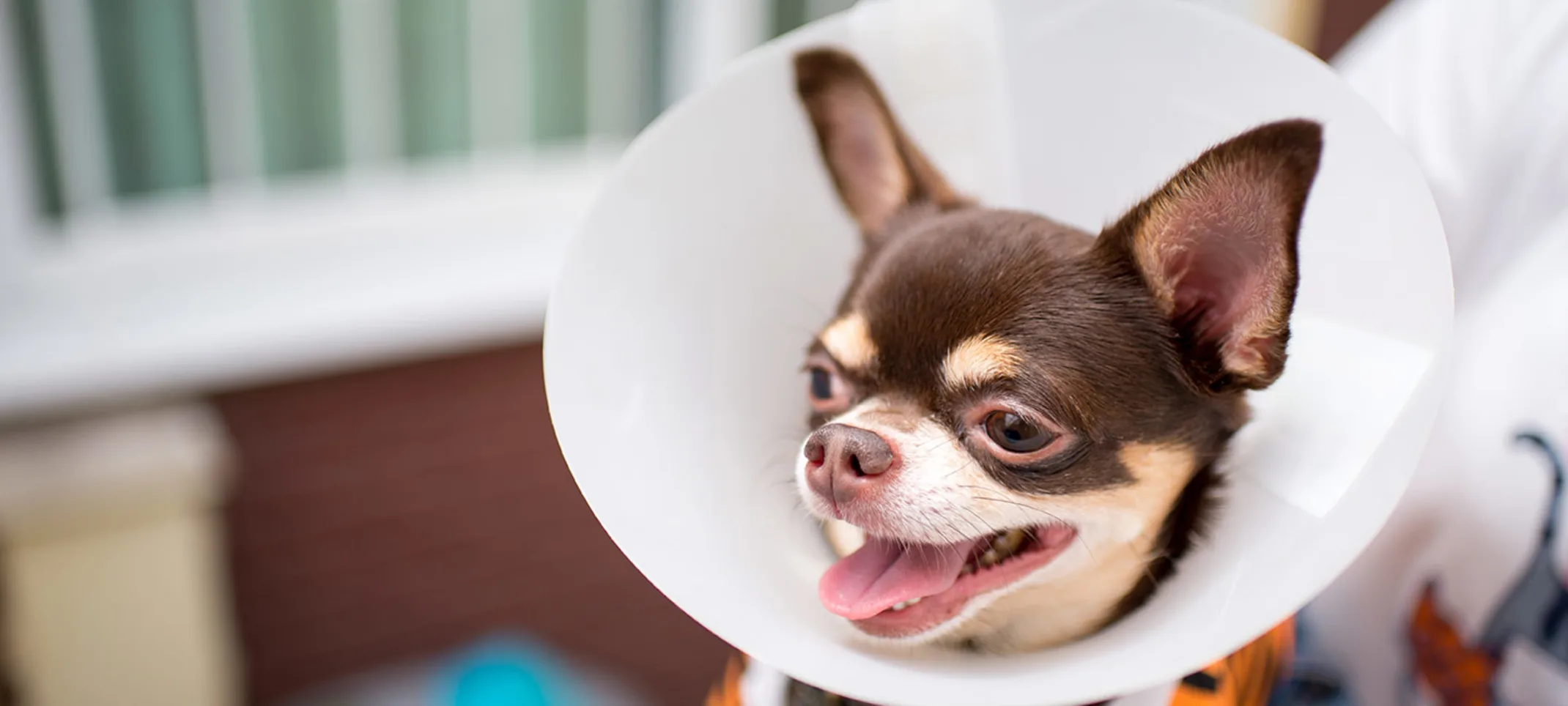Pet Medical Center & Spa
Soft Tissue Surgery
We perform soft tissue surgery for a number of medical reasons. This common surgery can be used for most anything non-joint or bone related.

Overview
Soft tissue surgery is any surgery non-joint or bone related, and can include ear, nose and throat, cardio-thoracic, hepatic, gastrointestinal, urogenital, skin reconstructive and oncological surgeries. If soft tissue surgery is recommended for your pet, we will do everything possible to keep them safe and comfortable before, during, and after the surgery.
Why would my pet need soft tissue surgery?
Veterinary soft tissue surgery is recommended for a variety of reasons. The most common soft tissue surgeries for animals are spay procedures, neuter procedures, hernia repairs, and mass removals. More advanced soft tissue surgeries include cystotomy, abdominal exploratory surgery, and splenectomy.
When would soft tissue surgery be needed?
Soft tissue surgeries are used for a wide array of medical conditions. These include "routine" procedures such as spays and neuters, as well as mass removals, trauma and emergency surgery, wound management and reconstructive procedures.
How do you care for my pet during surgery?
Our veterinarians adhere to the highest level of care standards for all surgical procedures. Our highly skilled doctors place the utmost emphasis on pain management to ensure your pet is safe and comfortable throughout the treatment process. We believe that keeping our patients safe and comfortable before, during and after surgery is of the greatest importance and an essential component of your pet's care.
Common Surgery Questions
Is the anesthetic safe?
Today’s modern anesthetic monitors have made surgery much safer than in the past. Here at Pet Medical Center, we do a thorough physical exam on your pet before administering anesthetics, to ensure that a fever or other illness won’t be a problem. We also adjust the amount and type of anesthetic used depending on the health of your pet. We only use Sevoflurane inhalant anesthetic, the safest and fastest acting gas to better adjust to each patients anesthetic needs. Each patient is closely monitored by a Registered Veterinary Technician.
My pet is healthy, why do I need bloodwork before surgery?
Pre-anesthetic blood testing is important in reducing the risk of anesthesia. Every pet needs blood testing before surgery to ensure that the liver and kidneys can handle the anesthetic. Even apparently healthy animals can have serious organ system problems that cannot be detected without blood testing. If there is a problem, it is much better to find it before it causes anesthetic or surgical complications. If serious problems are detected, surgery can be postponed until the problem is corrected. We offer three levels of in-house blood testing before surgery, which we will go over with you when you bring your pet in. Our doctors prefer the more comprehensive screen, because it gives them the most information to ensure the safety of your pet. For geriatric or ill pets, additional blood tests, electrocardiograms, or x-rays may be required before surgery as well. Although we recommend that bloodwork be done at least one full day in advance of all surgeries, our in-house lab affords us the ability to run blood work on-site.
Is it necessary that my pet have an IV catheter placed and what are the benefits of running fluids during surgery?
We recommend that all patients have an intravenous catheter placed. This allows us to have intravenous fluids administered during surgery which helps maintain blood volume which in turns helps us maintain blood pressure and allows for a smoother recovery. This is especially important in patients with kidney trouble. Animals that have minor dysfunction will handle the anesthetic better if they receive IV fluids during surgery. Additionally, an intravenous catheter gives us direct access to the vein to be used to administer drugs more quickly in case of an unlikely emergency.
Why do I need to withhold food and water from my pet prior to surgery?
It is important that surgery be done on an empty stomach to reduce the risk of vomiting during and after anesthesia. You will need to withhold food for at least 8 to 10 hours before surgery. Water can be left down for the pet until the morning of surgery.
Will my pet have stitches?
For many surgeries, we use absorbable sutures underneath the skin. These will dissolve on their own, and do not need to be removed later. Some surgeries, especially tumor removals, do require skin stitches or staples. With any type of closure, you will need to keep an eye on the incision for swelling or discharge. Most dogs and cats will lick or chew at the incision which can cause post-surgical infection. This is a problem you will need to watch for at home and an e-collar may be recommended. If there are skin sutures or staples, these will usually be removed 10 to 14 days after surgery. You will also need to limit your pet’s activity level for a time and no baths are allowed until the sutures have been removed.
Will my pet be in pain?
Anything that causes pain in people can be expected to cause pain in animals. Pets may not show the same symptoms of pain as people do; they usually don’t whine or cry, but you can be sure they feel it. Pain medications needed will depend on the surgery performed. Major procedures require more pain relief than things like minor lacerations.For dogs, we may recommend an oral anti-inflammatory the day after surgery and several days after to lessen the risk of discomfort and swelling. We use newer medications, which are less likely to cause stomach upset and can be given even the morning of surgery. The cost of the medication ranges from $21 to $55 depending on the size of your dog. Because both dogs and cats do not tolerate standard human medications such as aspirin, ibuprofen, or Tylenol, we typically use medications that are strictly used in animal medicine. Recent advances in pain medications have allowed for better pain control in cats and dogs more than ever before. We administer a pain injection 10 minutes prior to surgery, which helps for pain as well as relaxes the patient going into surgery. We use non-steroidal anti-inflammatories (NSAIDS) and other analgesics on a case-by-case basis depending on the intensity of the surgery. Any animal that appears painful will receive additional pain medication. We also use narcotic patches for some surgeries in both dogs and cats. The cost will depend on the size of your animal. Injectable narcotic pain medications may also be used after surgery on both dogs and cats. Providing whatever pain relief is appropriate, is a humane and caring thing to do for your pet.
What other decisions do I need to make?
While your pet is under anesthesia, it is the ideal time to perform other minor procedures, such as dentistry, ear cleaning, or implanting an identification microchip. If you would like an estimate for these extra services, please call ahead of time.
